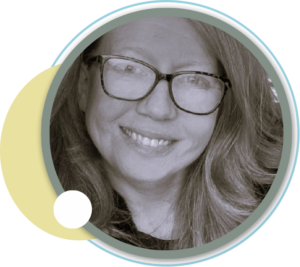I’ve learned from my many roles in life that I don’t have to look too hard to find something to worry about. My children will even say that I have mastered the art of catastrophic thinking.
One of the many personal benefits I derive from my work with the ND community is following a strengths-based approach to neurodiversity, which I work really hard to translate into all aspects of my life. Most approaches to ADHD, autism and related conditions still resort to the medical, deficits-based model. I’m not sure who that model is intended to benefit, but it sure doesn’t help the folks being beat over the head continuously with how OTHER-WRONG-BAD-BROKEN they are being perceived by the world.
A strengths-based approach means focusing on what the person can do, not what they cannot do because of their disability. Recognizing traits related to an individual’s natural skills, passions, and personality that make them unique, helps all people to see that these traits contribute to their identity positively.
This strengths-based approach reminds me of one of my favorite stories about my mom, Margaret. (Bear with me while I brag about having such a fabulous mom again!) My mom and I pretty much spoke every day, once I graduated college and realized how really fortunate I was to have this great lady in my life who always was looking out for me even when I didn’t know I needed looking after.
During one of those daily phone calls, I was working in sales for a tech company from my home office that was in the guest house of our very beautiful home in a tony neighborhood about 1000 miles away from my mom in Wisconsin. (The details have a purpose; I’m not just bragging!) My sweet 6-month-old baby girl was inside the main house being lovingly cared for by our wonderful nanny. I was well dressed that day in a chic suit I had picked up on a trip to New York City. My expensive luxury car waited in the driveway for me to drive across town to see a corporate client. I called Mom over lunch before I left for the afternoon.
I was particularly grumpy that day and complaining to my mom about some minor infraction my dear husband had unwittingly committed. That was not unusual for our conversations. Margaret was my sounding board for most everything. Typically, she gave me a lot of “Uh-huh’s” and “Yes, I know dear’s.” That day Mom was entirely silent as I droned on.
When I realized from her silence what I sounded like to her, I apologized. I used the old family adage about crying with a loaf of bread under my arm. And that’s where my kind, humble mom completely snapped me into reality. She immediately retorted “You’ve got the whole God d^mn bakery!” Initially I gasped “MOM!” because I was so incredibly shocked that my mom said G-D. I’d never heard that out of her mouth in my lifetime. But she continued “I know, Mary, but I get sick of it too! You have a life I never could have dreamed of for myself and you’re complaining. There are too many good things for you to complain. Focus on the good!”
And that in a nutshell is the essence of my amazing mom AND the Strengths Based Approach to Supporting Neurodiversity (Vromen, Ph.D., 2023) that is the pervasive underpinning to successfully living in an inclusive society where people are appreciated for the good things, the things they are proud of.
I’m quite confident that Margaret was able to stay married to my dad (IMO undiagnosed autistic electrical engineer with an explosive temper and severe sensory and social overload who could not tolerate any change to his daily routine. My mom and his cousin were the only friends I ever knew my dad to have.) for 55 years until his death because of this strengths-based approach to the world at-large. I cannot recall even a handful of times my mom complained about my dad or their humble, long lifetime together. There was too much good in Daddy holding Margaret’s attention.




